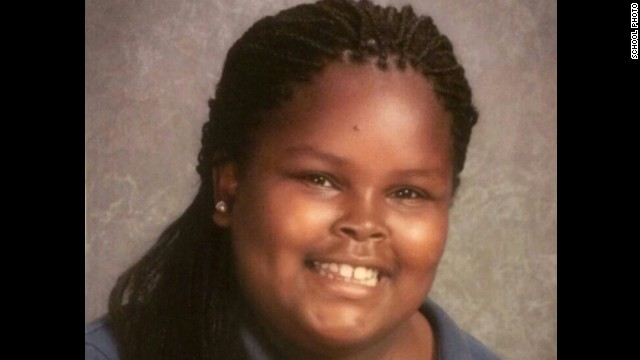 Last week, an Alameda county court in California determined that Jahi McMath, a teen who was declared “brain dead” after a botched tonsil surgery, could be taken off of her ventilator on Monday, December 30, in accordance with the hospital’s wishes. McMath’s family has resisted every effort by the hospital to take ventilator support away from Jahi after a team at the hospital caused Jahi to slip into a state of brain death.
Last week, an Alameda county court in California determined that Jahi McMath, a teen who was declared “brain dead” after a botched tonsil surgery, could be taken off of her ventilator on Monday, December 30, in accordance with the hospital’s wishes. McMath’s family has resisted every effort by the hospital to take ventilator support away from Jahi after a team at the hospital caused Jahi to slip into a state of brain death.
The family’s wishes are not being honored, however, and the children’s hospital where Jahi is being held will not even allow the family to transfer Jahi to a facility that would allow her to stay on a ventilator. The order that Jahi’s ventilator be removed on December 30th was extended at the last moment after the family’s attorney appealed to the judge to keep Jahi alive longer. According to the LA Times:
The family had therefore filed a new complaint in federal court and also appealed to Alameda County Superior Court to extend its temporary restraining order, the Oakland Tribune reported.
The court order keeping Jahi on a ventilator at Children’s Hospital Oakland was due to expire at 5 p.m. Monday. As the deadline drew closer Monday afternoon, local media reported that a judge had extended the deadline until Jan. 7.
There is controversy surrounding definitions of “brain death,” which have been modified in recent years (possibly in the interests of organ harvesting, which requires some state of life; organs taken from a corpse are essentially useless). The Uniform Determination of Death Act, or UDDA, was created in the 1980s and has been adopted by most states as the acceptable way to determine whether a person is dead. The Act defines “death” as a cessation of brain function, which means that people whose hearts are beating and who are breathing with the assistance of a ventilator can ethically have their organs harvested because, according to the newer definition, a person is “dead” when their brain ceases to show activity on standard neurological tests. Pro-life physician Dr. Paul Byrne, an expert on the subject, said,
The ventilator won’t work on a corpse. In a corpse, the ventilator pushes the air in, but it won’t come out. Just the living person pushes the air out.
Wesley J. Smith described Jahi’s medical situation very well, saying:
In Jahi’s case, brain dead actually means a declaration of “death by neurological criteria,” one of the two legal methods for declaring the bona fide death of a human being. To be declared dead by neurological criteria does not mean there are no brain cells remaining alive. Rather, it means that medical tests, observation of the patient post injury, and history of the case demonstrate that the patient’s brain and each of its constituent parts have irreversibly ceased to function as a brain. As one doctor told me, it is as if the patient was functionally decapitated.
Smith acknowledges that, because a person who has been declared brain dead is legally dead, there is not a legal right to keep their bodies on life support. But Jahi is not a corpse, and her family’s wishes are to allow her to continue to live on their own terms. We’ll be following this case closely and awaiting the outcome of the McMath family’s battle for Jahi.







